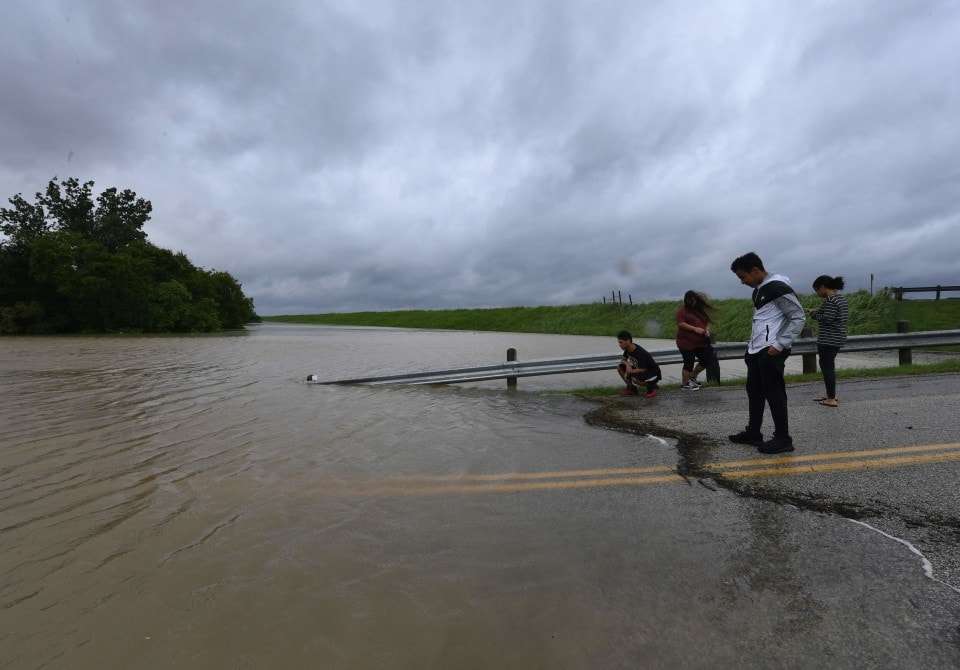The Volokh Conspiracy
Mostly law professors | Sometimes contrarian | Often libertarian | Always independent
University fires professor for tweeting that hurricane 'kinda feels like [instant karma] for Texas'

Tampa Bay Times (Claire McNeill & Langston Taylor) reports that visiting assistant professor Kenneth Storey was fired for tweeting, "I dont believe in instant karma but this kinda feels like it for Texas. Hopefully this will help them realize the GOP doesnt care about them." (He later apologized.) Here's the university's statement:
On Sunday, Aug. 27, visiting assistant professor of sociology Kenneth Storey made comments on a private Twitter account that do not reflect UT's community views or values. We condemn the comments and the sentiment behind them, and understand the pain this irresponsible act has caused.
Storey has been relieved of his duties at UT, and his classes will be covered by other sociology faculty.
As Floridians, we are well aware of the destruction and suffering associated with tropical weather. Our thoughts and prayers are with all impacted by Hurricane Harvey.
Storey's comments were nasty and mean-spirited; and I should note that the University of Tampa is a private university, in a state that doesn't limit private employers' ability to fire employees for their speech. The university's actions thus seem legal (assuming they didn't breach any contract). And Storey's comments also weren't academic or likely to be part of a serious political debate.
But the university's action strikes me as further undermining the freedom of expression and debate at American universities, including the freedom to say things that are much more thoughtful. If you were an untenured faculty member at the University of Tampa, would you feel free to express your views on controversial subjects, when you saw how the university reacted to this tweet? Even if your views were very different politically, what do you think the University would do if people started pressuring for your dismissal, pointing to the Storey incident as precedent?
I've talked before about "censorship envy," one mechanism through which these sorts of speech restrictions can grow: "If my neighbor - and especially my political adversary - gets to ban speech he reviles," the thinking goes, "why shouldn't I get to do the same?"
If a university has a strong policy of protecting speech, including offensive speech, administrators can point to that policy as a means of resisting calls for firing a controversial faculty member, and they can appeal to people's desire to see speakers on their own side protected, and use that desire to help protect speakers on all sides. But once the university starts firing some people for speech "that do[es] not reflect [the university's] community views or values," that makes it much harder to resist calls for more suppression. Indeed, at that point tolerating speech starts implicitly conveying the message that the speech does reflect the university's community views or values - and to avoid that implication, the university would have to fire any speaker who offended some sufficiently influential constituency.
And what about students? If you know your professor was fired for his speech, how can you - someone of much lower status than even a visiting assistant professor - have any confidence that your controversial speech will be protected? Let's say even that you want to speak sensibly and reasonably and think that your view isn't nasty, ill-timed and largely unsubstantive the way that Storey's was. Do you feel secure that the university will draw such a distinction? Or do you think that it will just give in to calls to discipline you or even expel you, the way it gave in to calls to fire Storey?
The slippery slope is a real phenomenon in a legal and political system in which so much is argued based on precedent, analogy and calls for equal treatment, including equal suppression. Is the desire to punish a jerk like Storey - emotionally understandable as the desire might be - really worth the damage that such firings can cause to free speech at American universities, including private ones?


Show Comments (0)